Steve Hackett’s top 5 tips for guitarists
Sage advice from the Genesis guitar legend
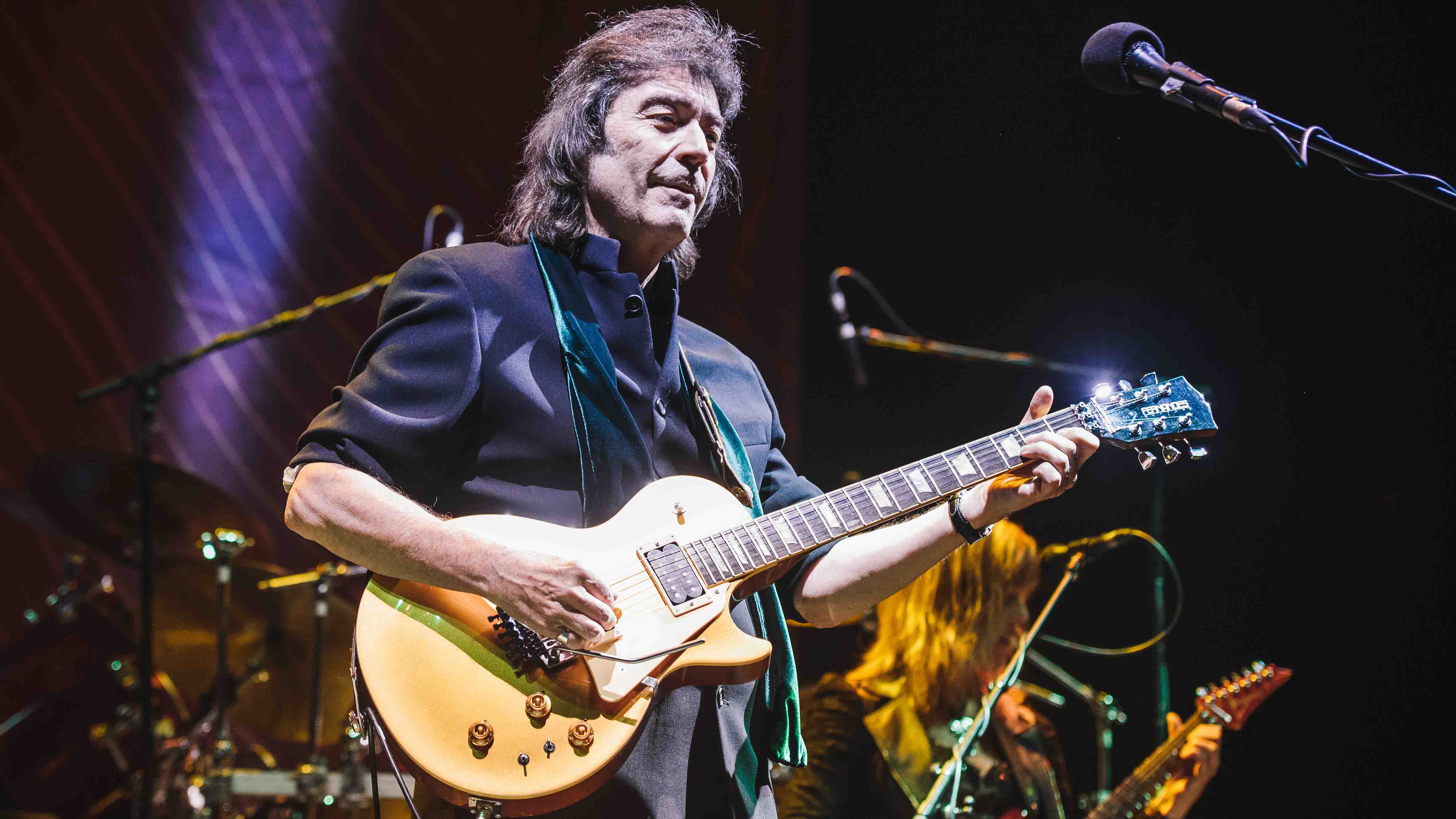
The Night Siren
Following a year of divisive political upheaval, former Genesis guitar virtuoso Steve Hackett has released arguably his most powerful solo album yet.
The Night Siren not only showcases some seriously top-notch musicianship from both Hackett and a whole host of musical collaborators from across the globe, it also delivers a compelling and refreshing message, celebrating musical unity and multicultural harmony.
“I've got friends all around the world and I just invited 20 of them to take part in the thing,” Steve explains.
“And then I realised, as my wife and I were working on lyrics, we were talking about the concept of unity and dealing with the refugee issue, both historical refugees and current refugees and their displacement. We were concerned about harmony in the widest sense and we were obviously concerned about the rise of nationalist politics. I'm quite sure that Hitler would be voted in today saying all these same things.
“Unfortunately, the law of the mob is very ugly and refugees are being demonised. My family were refugees in the late-1800s. Just over 100 years ago, the Jewish side of my family escaped religious persecution in Poland. Luckily, we were allowed into England but, currently, I doubt whether my family would have arrived successfully.
“I think most people have got no idea the amount that could be lost at the moment with Brexit and the rise of nationalism. People are voting in right-wing politicians and people think employment is going to improve, but what happens is that the rich get richer and the poor get poorer. I'm terrified at the moment at the state of the world.
“It makes me think of the song Epitaph by King Crimson and the lyric ‘The fate of all mankind I see/Is in the hands of fools.’ It says it all. That's a line I wish I'd written myself and it's more pertinent today than it was in 1969. We're so on the brink of losing everything at the moment. People are not remembering the lessons of the past.”
Being a musical migrant as I am, music has no barriers
In what ways does Steve believe music can bring people together and help restore the kind of harmony that has been so lacking over the past 12 months or so?
“Being a musical migrant as I am, music has no barriers,” he says.
“Miscegenation is precisely what I'm interested in. I like the idea of world fusion and I love the idea of having friends all around the world with extraordinary skills that I don't possess myself on instruments that I'm hardly familiar with.

“It all began in South America many years ago when I was working with Brazilian musicians and I tried to totally immerse myself in their music and playing. It was percussion that I was interested in at that time and I was sharing my phonebook with Peter Gabriel and saying, ‘If you go there’ - as he was - ‘Here's some people who I think might be interesting for you.
“Over the years, I've collected various performances by people but, you know, sometimes they'll only surface 20 years later because I finally find the piece of the jigsaw I’m looking for. Songs don't get written chronologically with me. I just have this messy ability to work outside of time. It's much like making a film I think, taking camera units everywhere.
“I'm a very messy thinker and talker, but I am trying to find some kind of harmony in the widest sense of the word. We might take something I recorded in Brazil years ago but, by the time we use it on a record, we've transformed it. We might have changed its speed, we may have compressed it or elongated it. Present technology affords all of that, which is wonderful.
“It's a wonderful time for making music but a terrible time in politics. Music is a great ambassador for peace and I'm sticking my neck out more these days because it's got to be done.”
Steve Hackett's new album The Night Siren is out now. Steve embarks upon his 15 date UK tour - Genesis Revisited with Classic Hackett - on 28 April. Tickets are available from My Ticket.
April
Fri 28 Cardiff, St. David’s Hall
Sun 30 Reading, Hexagon
May
Mon 1 Birmingham, Symphony Hall
Wed 3 Sheffield, City Hall
Thurs 4 Bristol, Colston Hall
Fri 5 Manchester, Bridgewater Hall
Sun 7 Liverpool, Philharmonic
Mon 8 Portsmouth, Guildhall
Wed 10 Southend, Cliffs Pavilion
Thurs 11 Nottingham, Royal Concert Hall
Sat 13 Oxford, New Theatre
Sun 14 Cambridge, Corn Exchange
Tues 16 Glasgow, Royal Concert Hall
Wed 17 Sage, Gateshead
Fri 19 London, Palladium
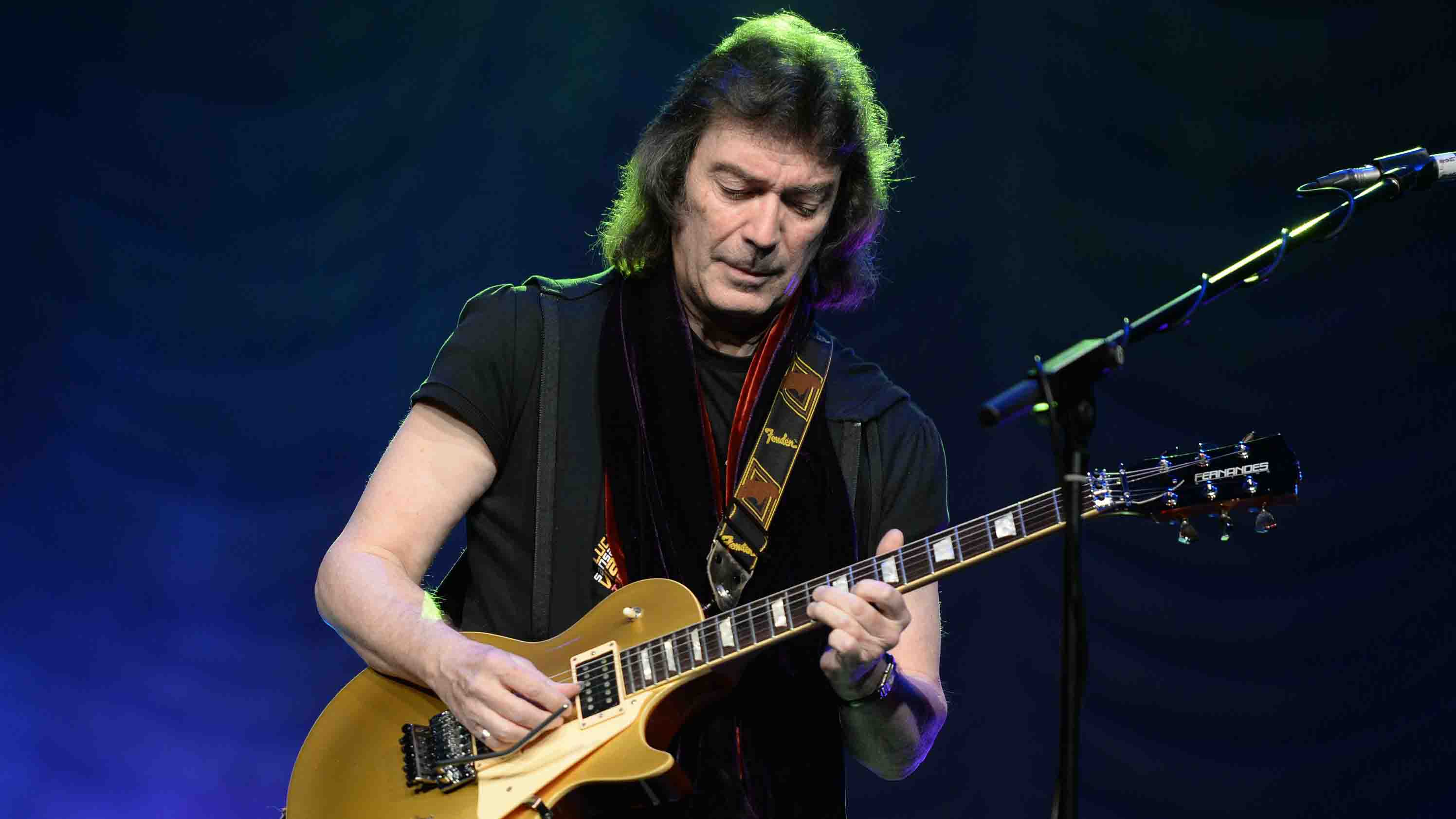
1. You’ve got to love it
“I’ve never had a guitar tutor. I’ve learned things from many people, but I’ve always been a pupil of the guitar and never its master, and that’s how I still consider myself. I just love the instrument and everything about it.
“There are still many things for me to learn, so I would say the first tip is to love it. If you love it, that will take you everywhere eventually.”
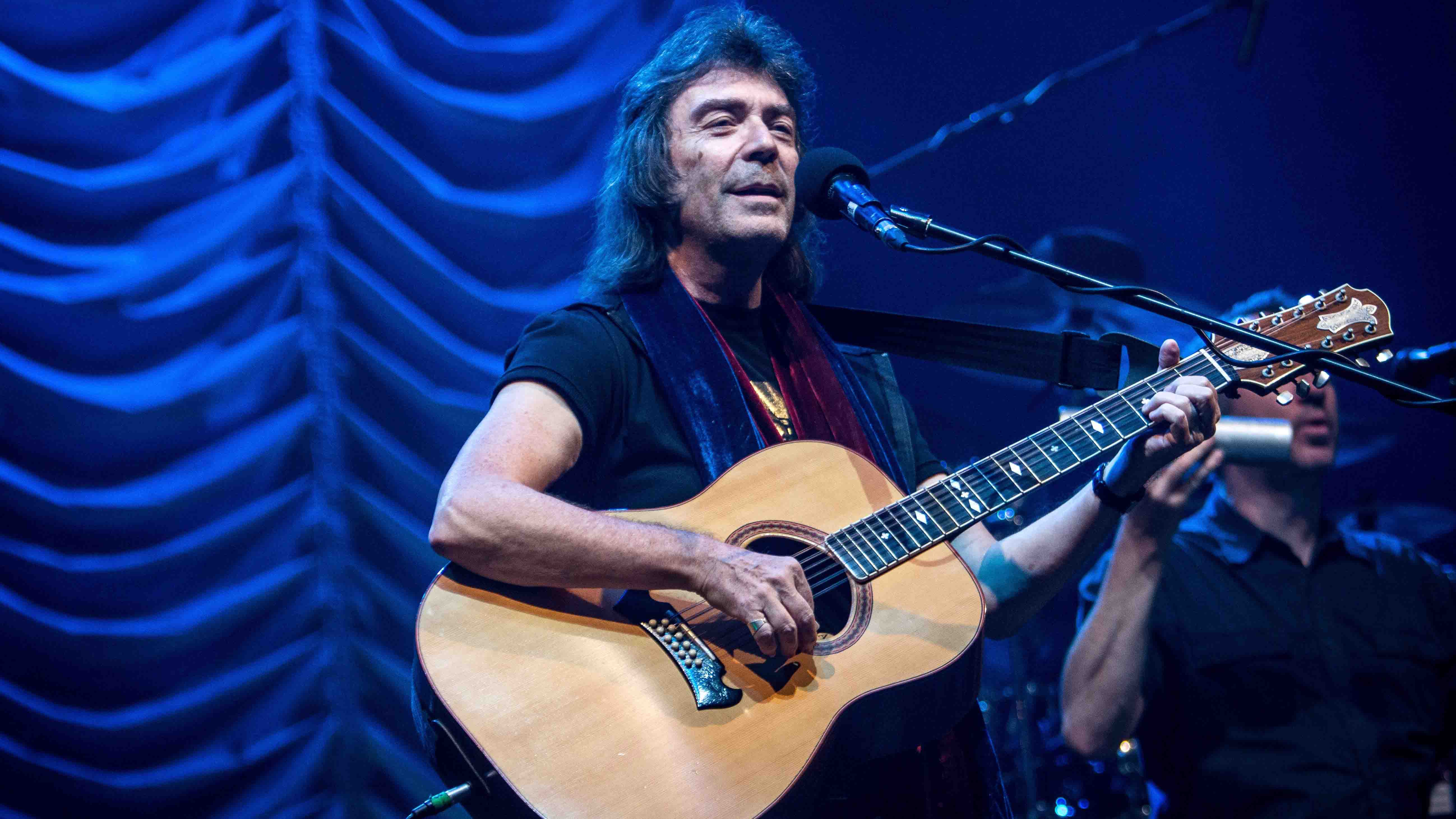
2. Listen to the masters
“Listen to Andrés Segovia, listen to Jimi Hendrix and listen to Django Reinhardt. There’ll be an epiphany going on there.
“You’ll get the best of the blues with Hendrix and the most fluid use of writing within a blues style. And I think Andrés Segovia signifies the birth of the classical guitar. It was a living miracle when I first heard his wonderful stuff and not just his work with Bach. I thought, ‘How's that possible on a guitar in one go?’
“It was if the guitar was no longer a poor relation to the keyboard. It seemed like he was able to access all the things that keyboard players could do on the fretboard, which was marvellous but with the extra facility of being able to use vibrato and techniques like portamento sliding.
“With Django Reinhardt, you have jazz. I gather he had physical limitations after he was wounded, but his playing was just so amazing and so fluent. He and Stéphane Grappelli were so suited to each other.”
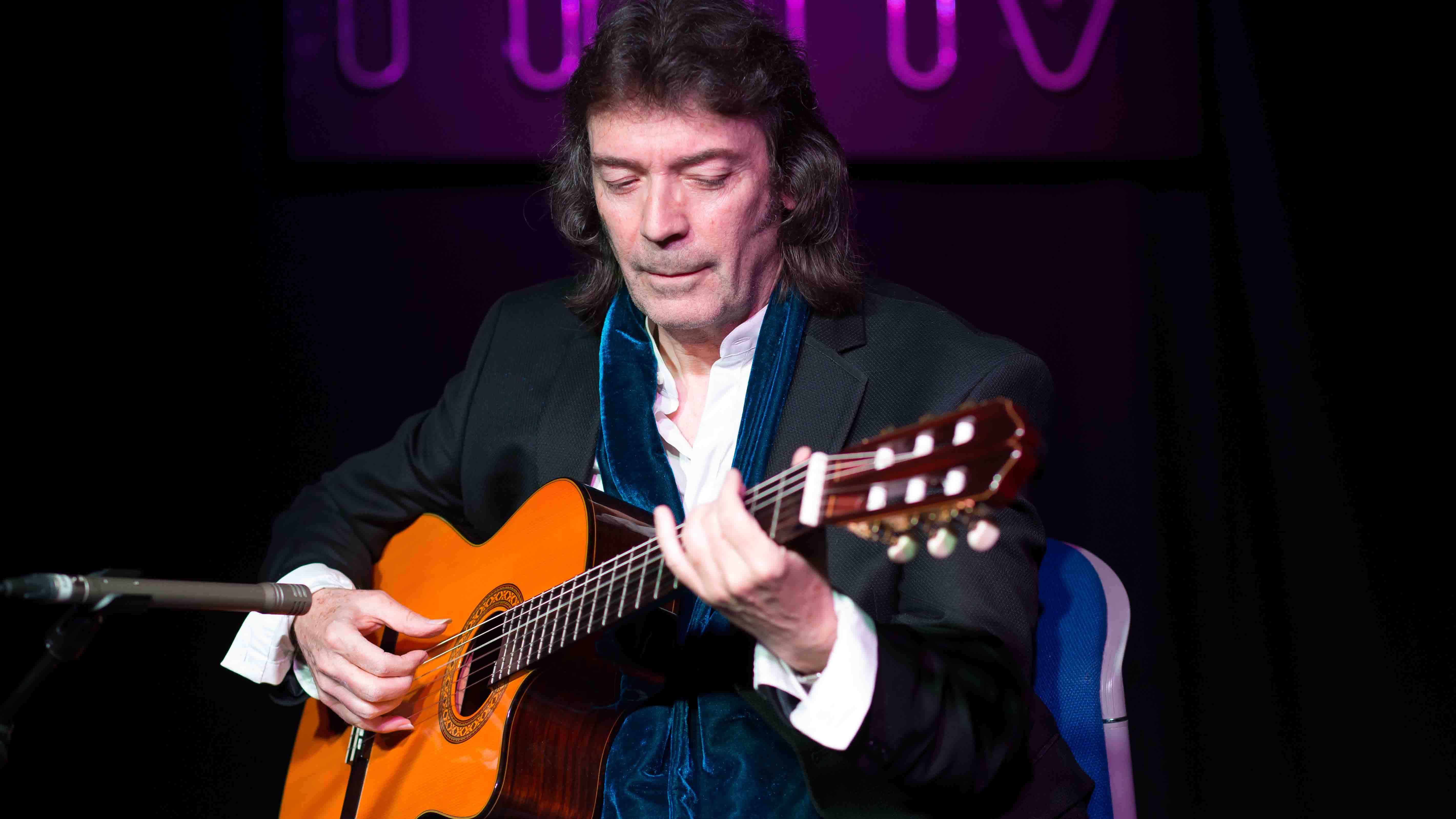
3. Play with passion, honesty and energy
“I decided to make my own mistakes when I started. I didn't want to be taught. I just wanted to go for it. I thought, 'I'll take a bit of this, I'll take a bit of that.' I just wanted to sketch in a number of styles. Those were my early thoughts. Latterly, I think, ‘Well, sometimes I can do a full portrait in an unfamiliar style if I've got enough attention to detail.’ The devil's in the detail.
“That’s what I did with the Tribute album [2008], which is the one I'm probably most proud of because it's the most technically difficult stuff I've attempted. I just wanted to make an album that was fluent in a classical style and I wasn't really concerned about performing it live.
“I just wanted to make the best classical guitar record I'd ever heard. I didn't want much, did I? I think maintaining passion, honesty and energy in your playing is so important for every guitarist.”
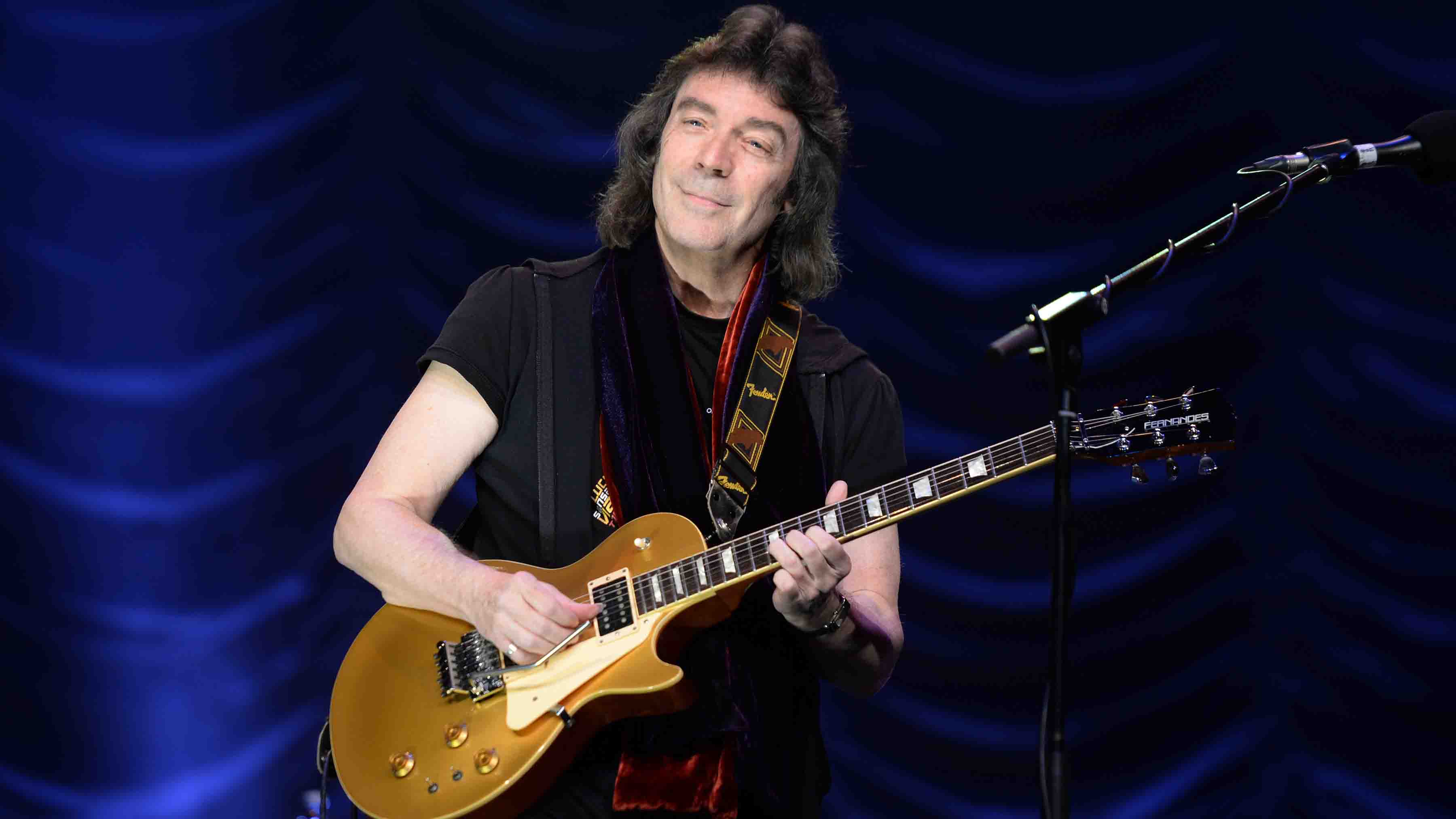
4. Collaborate with as many people as possible
“I used to advertise myself in the back pages of Melody Maker from the age of 16 until I was 20, then I joined Genesis when I was 21. If I had the money, I'd advertise myself every week.
Music never really seemed like work, and even now I'm concerned that it doesn't feel like work!
“I left school at 16 but I did other jobs because I didn't want to be a sponger, but I didn't really want to do anything else but music. The real work used to start either after school when I was a pupil or after work. It was kind of doing two jobs a day really, but then music never really seemed like work, and even now I'm concerned that it doesn't feel like work!
“I think it's important to associate with as many musicians as you can. I don't know whether that facility exists anymore, something like Melody Maker where people can advertise, but it was a great way of accessing people who sometimes were more technically gifted than me and sometimes less technically gifted. I just wanted to find people who were really committed to doing something extraordinary.
“I guess you just have to keep knocking on doors and trying everything you possibly can and don’t be shy. Don't worry about the rejections. Just keep playing the tables and you really will make your own luck that way.”
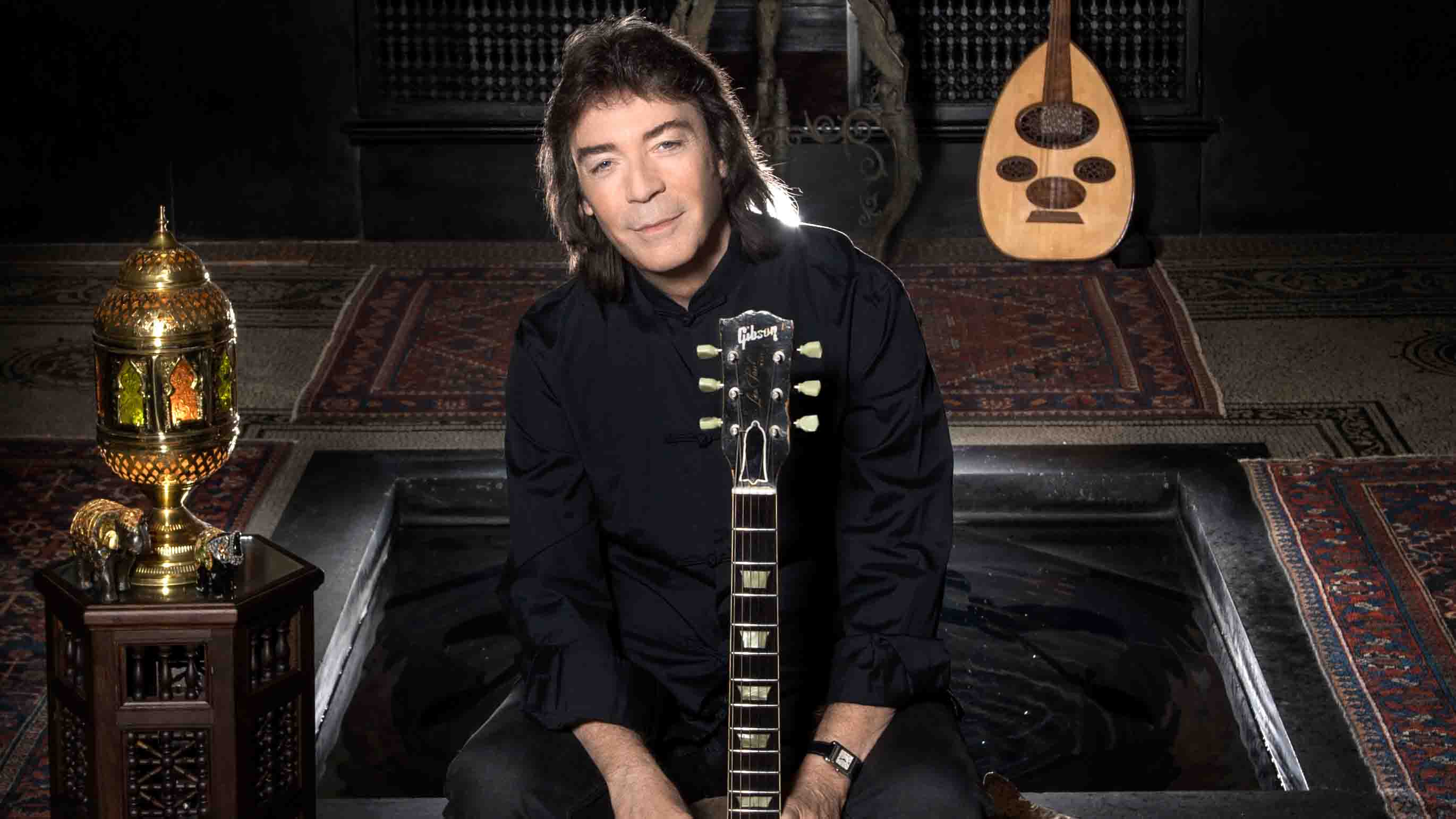
5. Don’t criticise yourself
“You need to lay the internal invalidator to one side. Stop criticising yourself and get on with the job. Don't worry about mistakes. They're all part of the job. If you don't make mistakes, you won't get anywhere special.
“It's not about screwing up, it's about having this kind of Airfix kit of disparate ideas and trying lots of things out. You should also allow yourself to do things that personally move you, because I'm continually making this mistake these days when I write songs.
“I think, ‘I'll just write this song for myself. I don't think anyone's going to like it, but maybe no one will notice because it's just one song on the album!’ Invariably, that will be the song that people say, 'Ah, I really like that' and what I thought was the most personal ends up being the most universal. I'm always relearning that lesson, so don't be afraid to pour out your heart and take risks.
Music is all-powerful. It's wonderful medicine. It can heal. It's much more powerful than I thought it could ever be
“Don't play the game from the outside looking in. Play it from the inside looking out. Be honest and use things like an actor does. If you want to write a song that's full of love and passion, allow yourself to think of that early lost love, whatever it was and you'll find you'll key into those feelings.
“Use pain, use joy, use everything and realise that music is all-powerful. It's wonderful medicine. It can heal. It's much more powerful than I thought it could ever be.

“When I was a kid, I got seriously sick at one point and I was able to see soundwaves and they would come towards me. They absolutely terrified me, but I believe that I was in an altered state. I don't believe I was hallucinating this at all. I could see them and I could hear them. I don't know anyone else who's had that facility, but it happened at a time when my chromatic harmonica was broken and I couldn't get it fixed and my father was away for a year.
“I think that loss of music was all part of the malady. I was terrified of these soundwaves that were coming for me and I could hear the electrical charge that went with them as well, the crackle. They were a distressed gold colour. They were coming for me and I thought they were going to kill me. They were terrifying monsters but there they were, and they had to be harnessed and honoured.”